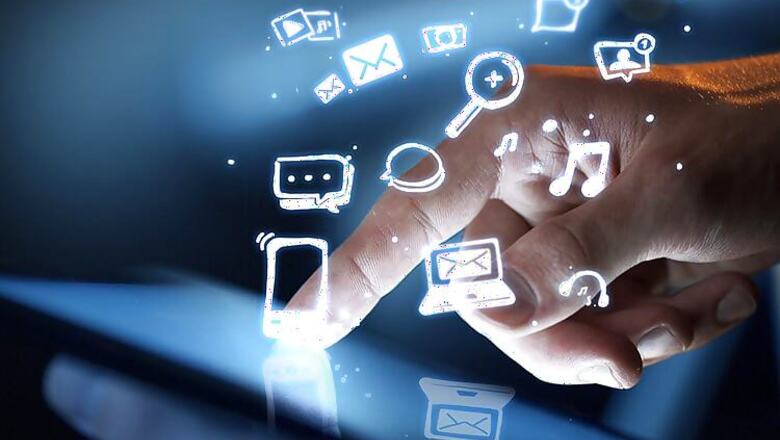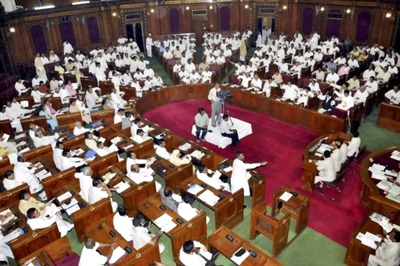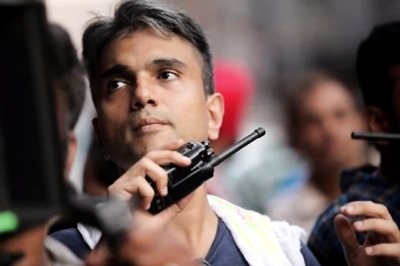
views
The humanity is also categorised (another one!) on the basis of Internet: digitally connected or unconnected. Digitally, there are three distinct groups: people in need of digital detox, people in need of digital literacy and those with Internet-connectivity to embrace digital adaptability (on-going and in-coming apps to services).
Digital detox:
Digital denizens may not recognise they have decreasing-attention spans, and blazingly ignorant of Internet's intrusion into their lives.
Leaving aside metaphysics, is there a world as real and as tangible as cybersphere?
Many digital users ought to look at their gadgets in order to monitor soaring or falling share prices, to be in the know of unfolding events across the world, to find out how one's profile is evolving online in order to suss him or her out for a reason (PR or digital assassination), etcetera. Accessing Internet could be for a plethora of reasons: from time-pass to information, to get connected with friends and family who are near and far; and for sheer livelihood reasons. With the rise in Internet, Internet-addicts are also rising.
For how many minutes and for how many hours can you focus on doing something without glancing at your Internet-enabled device?
Internet addiction:
An impulse control disorder, Internet addiction interferes with normal living of a person, and impacts on family and friends because the person is possessed by Internet compulsivity. It is an addiction because user may develop affinity for virtual friends; creates a virtual social life on chat rooms, social networking sites, and virtual communities; and lives more of a virtual life (on screen rather off screen) than a real life.
An internet addict creates a world on a digital screen without living the real life but eking out a virtual fantasy.
Knowingly, or unknowingly, online users could be suffering from information overload, screen addiction, Internet infidelity, sexting and porn addiction (anti-paedophile British Labour MP Samuel Danczuk, 49, is suspended from the party for sending lewd messages [sexts] to a 17-year-old student who was looking for a job saying 'whether she would like to be spanked by him'); online gaming addiction, eBay addiction, cyberaffairs, video games, internet infidelity, pathological gambling, failing to control online presence, obsessed with the Internet (mulling over pre- and post-online activities), irritability when Internet usage is curtailed or disconnected, and to escape from dysphoria.
Digital detoxification:
With Internet addiction becoming a reality, specialists to deal with it are gaining importance: Digital detox, and detoxification. Dr Kimberly Young is the founder of 'The Center for Internet Addiction' and provides treatment for Internet addiction, and specialized Cognitive-Behavioral Therapy for Internet addiction. She authored: When Gaming becomes an Obsession: Help for Parents and their Children to Treat Online Gaming Addiction, Tangled in the Web: Understanding CYBERSEX from Fantasy to Addiction, and Net Negotiations: What Every Parent Should Know about Controlling a Child's Use of Technology.
There is a growing market for Digital Detoxification: digital detox resorts, retreats, and destinations where there is no Internet! They are touted as a panacea for Internet addicts.
'The Digital Detox Company' provides bespoke digital-wellness services for the business community based on the principles of 'to live mindfully in a digital world'.
Digital Detox Bath!
Yes. Pursoma's Digital Detox Bath apparently helps one to relieve electronic-based radiation and toxins. Digital Detox Bath is made of clay and French grey sea salts (effective in drawing out toxins). Pursoma is a beauty and wellness company producing products 'to combat urban toxicity'. It is a product of France but packaged in the US but available online for Indians.
Clay is a natural cleaning and cleansing agent.
Baba Ram Dev can consider producing 'Patanjali Digital Bath Bars' sourced with the clay on the banks of Mother Ganges.
Digital literacy:
"Digital India is our dream for the nation. When I say 'digital India' it is not meant for the rich but for those who are poor." - Narendra Modi, Prime Minister
Digital India: 'Power to Empower' is the slogan of National Digital Literacy Mission (NDLM) scheme under the Department of Electronics and Information Technology, Ministry of Communications & Information Technology, Government of India. The mission was formulated to impart IT training to 52.5 lakh persons among them are Anganwadi and ASHA workers, authorised ration dealers. This is aimed to train the non-IT literate citizens to become IT literate. Why? To actively and effectively participate in the democratic and developmental process and also enhance their livelihood. Modi government is giving due emphasis on digital connectivity. If Indians under Modi government experience the fruits of his vision and mission (digital and non-digital), he could be voted back to power in 2019 General Elections. If not?
Freebies (incentives): Mobile phone with Internet!
India, the world's largest electoral laboratory, is going to witness few digital freebies. We have seen blenders (mixies), grinders, rice cookers, saris, laddu with a nose stud (deep inside, else your neighbour will notice, or, the Election Commission will take it away), cash for vote... distributed to the voters but the youth want something more. Now. Instantly. In Digital India, they could be lured with a 'free' mobile phone, a mobile phone with Internet connection depending upon the political party's digital wallet, digital density and digital penetration. The voters can see the reality of the development on their gadgets and vote accordingly. Like they did in Tamil Nadu after they received television sets from the God-hater turned God-lover the incumbent Chief Minister Karunanidhi, and voted him out of power. In addition to the staple telly diet, they also saw 2G scam.
Digital adaptability:
Those who have an Internet-enabled device - smartphone, mobile phone, desktop, laptop, iPad or a tablet - have to constantly adapt to the new digital things (apps, which service provider is the best; what is free and where, what is user friendly).
If you are not a digital adapter you'll lose (digital) compatibility with your colleagues, peers, friends and family (I'm on WhatsApp, you've to be on WhatsApp).
You ought to adopt and adapt the digital technology (detox comes a little later) and constantly equip yourself to most things on online.
Digitally, enough is not enough: enough is never enough. There is an infinite world out there and here: inside and outside. Customise a digital moderation schedule.
(Kovuuri G Reddy teaches journalism at the Department of Journalism & Mass Communication, AIGS, Acharya Institutes, Bangalore University. He can be contacted at [email protected])




















Comments
0 comment